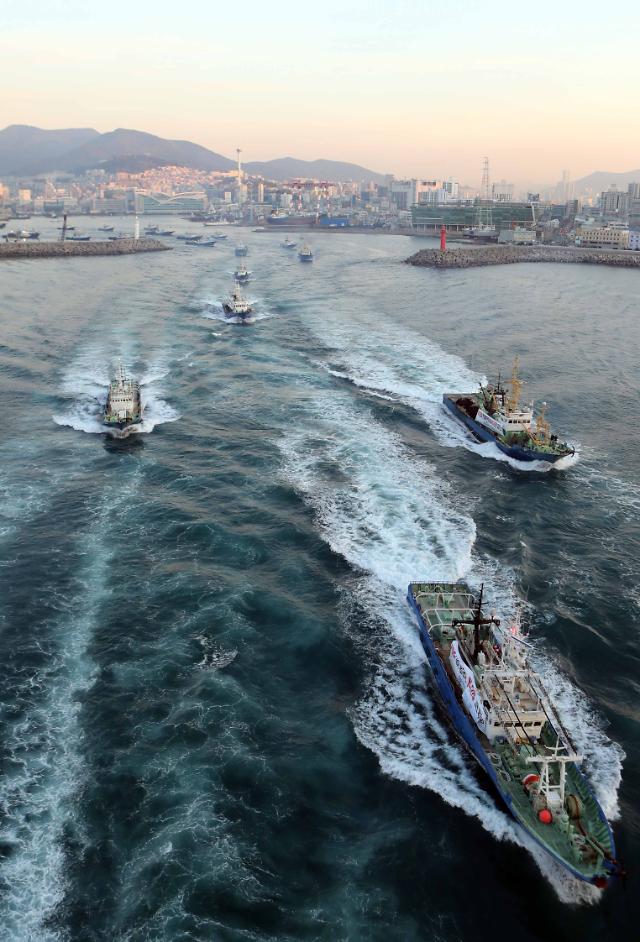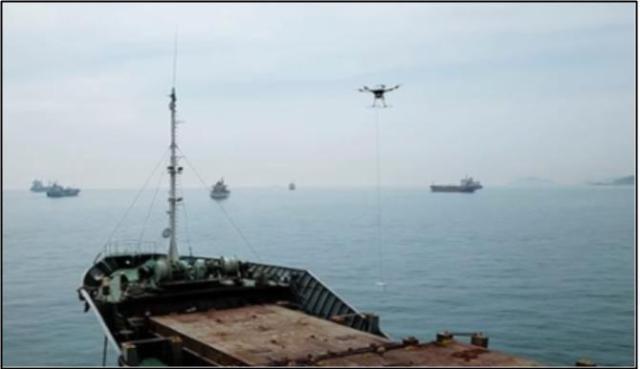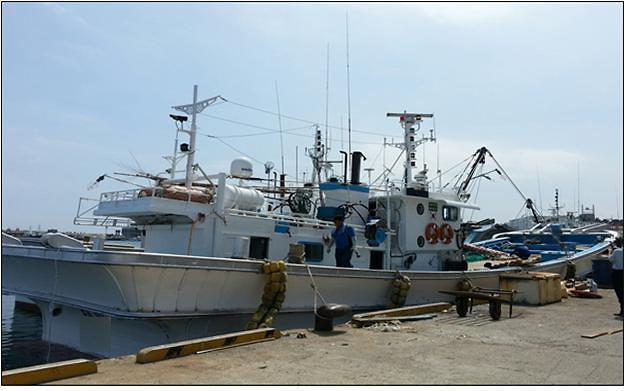
Hundreds of fishing vessels head out to Yokjido to protest against sea sand collection on March 15. [Yonhap Photo]
South Korean fishermen fearing a drastic cut in their catch and disruption of the marine ecosystem threatened a huge seaborne protest involving thousands of fishing boats to block the collection of sand from the seabed.
The protest called by the National Federation fo Fisheries Cooperatives comes after the government allowed aggregate collectors to resume their suspended work for a year from March 1 in waters near Yokjido Island off the south coast.
The green light sparked an angry protest from fishermen who have urged some 40,000 fishing boats registered with 90 local chapters of the National Federation fo Fisheries Cooperatives to stage simultaneous protests in the sea on March 15.
The collection of sea sand began in 2008 as South Korea's rapid industrialization ignited a construction boom nationwide and led to the depletion of land sand. Official sandpits were designated at two places off the southwestern port city of Gunsan and Yokjido.
Dredging sand from the seabed was suspended off Yokjido in January due to protests.
Fishermen insisted they have seen a drastic cut in their catch because the marine ecosystem was seriously disrupted by the collection of sand. Contamination and rampant poaching by Chinese fishermen around the Korean peninsula have played a role in depleting fish stocks.
The South Korean government admitted freshmen have a good reason but appealed for their understanding, citing a short supply of sand for construction.
Due to an active campaign by environmental activists and residents, the government is reluctant to gather sand from the river and the beach.
The glittering white-sand Haeundae beach in the southern port city of Busan was once considered one of the country's greatest natural wonders, but it has experienced rapid erosion.
Along with a 41-million-dollar state program to build underwater sea walls, the local government has dumped sand on the beach every year before the summer season. Experts said strong wave-induced currents and rip currents as the primary destructive causes for erosion, but also said regional development has lead to rapid erosion.
Lim Chang-won = cwlim34@ajunews.com




